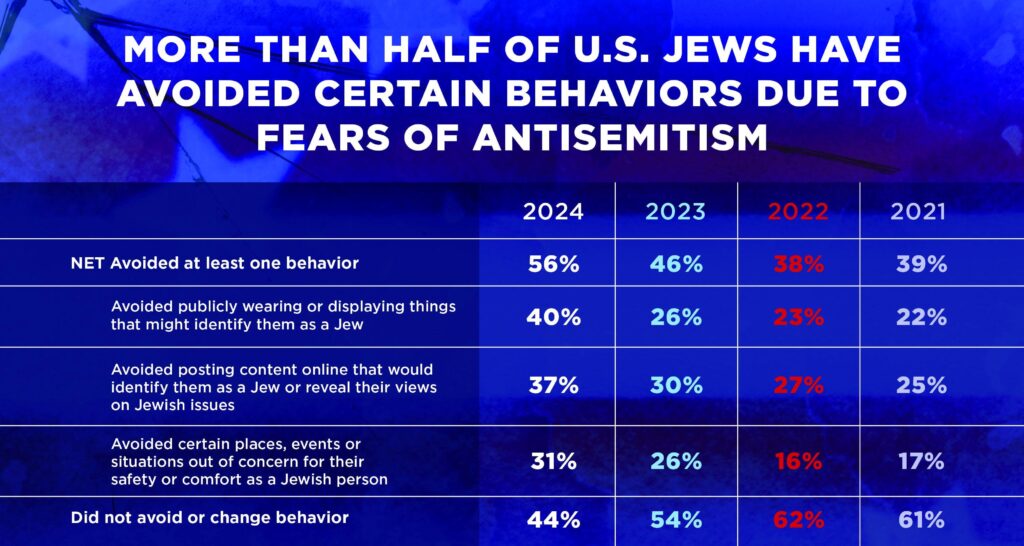Championing Jewish Safety: A Cornerstone of Progressive Social Justice
Reframing Jewish Security as a Progressive Priority
In today’s sociopolitical climate, conversations about community protection often become entangled in partisan debates. However, the urgency of safeguarding Jewish communities transcends political affiliations, standing as a universal human rights concern. With antisemitic incidents escalating worldwide—according to the Anti-Defamation League, global antisemitic acts surged by over 30% in recent years—ensuring Jewish safety is not merely a cultural or religious issue but a vital progressive commitment grounded in equity, justice, and human dignity. This article delves into how protecting Jewish lives is integral to advancing inclusive social justice and why it must be embraced as a core progressive value.
Jewish Safety: A Reflection of Societal Equity and Justice
At the heart of progressive social justice lies the principle that every community deserves to live free from fear, discrimination, and violence. The security of Jewish populations serves as a critical indicator of a society’s overall health and its dedication to eradicating hate crimes and systemic prejudice. Addressing antisemitism directly and fostering policies that celebrate religious and cultural diversity are essential steps toward creating safe, welcoming environments. These efforts resonate deeply with progressive ideals that emphasize protecting marginalized groups and upholding human dignity.
Effective strategies to uphold Jewish safety include:
- Enacting robust anti-hate crime legislation that specifically shields Jewish institutions and neighborhoods from targeted violence.
- Launching educational initiatives designed to dismantle harmful stereotypes and build bridges of understanding across different racial and religious communities.
- Empowering grassroots safety programs led by Jewish communities that foster collaboration with broader progressive movements.
| Policy Domain | Effect on Jewish Security | Core Progressive Principle |
|---|---|---|
| Hate Crime Legislation | Decreased hate incidents, enhanced legal accountability | Justice and Equality |
| Educational Reform | Greater cultural awareness, reduced bias | Diversity and Inclusion |
| Community Investment | Improved security infrastructure and outreach | Empowerment and Solidarity |
Integrating Antisemitism Awareness into Broader Equality Efforts
Antisemitism remains a persistent and distinct form of hatred that must be explicitly addressed within the wider social justice landscape. Ignoring the specific challenges Jewish communities face risks fracturing progressive coalitions and allowing antisemitic ideologies to persist unchecked. Genuine inclusivity requires recognizing these unique threats and incorporating targeted responses alongside universal equity initiatives.
Key components of an inclusive approach include:
- Comprehensive education: Embedding antisemitism awareness into diversity and inclusion curricula across all social justice platforms.
- Building intersectional alliances: Forming coalitions that acknowledge the particularities of antisemitism while uniting around shared goals.
- Advocating for explicit protections: Supporting laws that safeguard Jewish communities from hate crimes and discrimination.
| Challenge | Strategic Response | Anticipated Result |
|---|---|---|
| Underrepresentation in Social Narratives | Elevate Jewish voices in media and activism | Enhanced visibility and deeper understanding |
| Perpetuation of Harmful Stereotypes | Develop counter-narratives and awareness campaigns | Reduction in stigma and prejudice |
| Disjointed Social Justice Coalitions | Create platforms for intersectional dialogue | Stronger, more unified movements |
Strategic Policy Measures to Enhance Jewish Community Protection
To effectively shield Jewish communities, policymakers must tackle both the manifestations and root causes of antisemitism. This includes boosting resources for specialized hate crime units within law enforcement and expanding training programs that enhance cultural sensitivity and threat detection. Enforcing harsher penalties for hate crimes sends a clear societal message that violence against Jewish individuals is intolerable. Furthermore, integrating comprehensive antisemitism education into school curricula fosters early awareness and empathy, helping to prevent prejudice from taking root.
Collaboration with local communities is equally crucial. Municipalities should allocate funds to upgrade security measures at synagogues, Jewish community centers, and educational institutions—installing surveillance technology and controlled access systems. Establishing rapid-response protocols between Jewish organizations and public safety agencies ensures swift action during emergencies. The following table outlines actionable policy recommendations for lawmakers dedicated to Jewish safety:
| Policy Area | Recommended Initiatives |
|---|---|
| Law Enforcement | Expand hate crime task forces, provide specialized training, enforce stricter sentencing |
| Education | Integrate antisemitism awareness into curricula, encourage interfaith dialogue programs |
| Security Infrastructure | Invest in protective technology, enhance emergency response systems |
| Community Partnerships | Strengthen collaboration between public officials and Jewish organizations |
Fostering Unity Through Inclusive Advocacy
Progressive movements gain momentum when they embrace the full diversity of affected communities, with Jewish safety serving as a vital unifying cause. Advocating for the protection of Jewish spaces alongside other marginalized groups cultivates powerful alliances grounded in mutual respect and shared objectives. This inclusive approach dispels the myth that security concerns are isolated to any single community and amplifies collective demands for justice and equality.
Effective coalition-building strategies include:
- Emphasizing intersectionality: Recognizing how antisemitism intersects with other forms of discrimination enhances outreach and inclusivity.
- Incorporating diverse leadership: Engaging advocates from varied backgrounds ensures comprehensive and representative agendas.
- Coordinating unified responses: Collective activism strengthens deterrence against hate and marginalization.
| Advocacy Approach | Impact |
|---|---|
| Intercommunity Dialogues | Fosters empathy and reduces social isolation |
| Joint Declarations | Showcases solidarity and shared commitments |
| Collaborative Security Initiatives | Improves safety and builds trust across communities |
Final Thoughts: Embracing Jewish Safety as a Progressive Imperative
In an era marked by a troubling rise in antisemitism and societal polarization, affirming Jewish safety as a fundamental progressive value is both a moral duty and a strategic necessity. Addressing the specific vulnerabilities faced by Jewish communities strengthens democratic ideals and reinforces the broader mission to protect all marginalized populations. As progressive leaders and activists shape the future, embedding Jewish security within their core principles will be essential to forging a more just, inclusive, and secure society for all.













